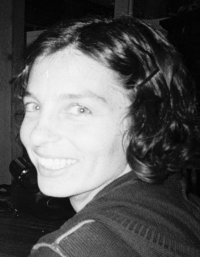2010 Project Locations
October 26, 2009
Logistics
Tentative dates for the JTerm are January 6th- 22nd. Students are expected to arrive in Santiago no later than the night of January 5th, class begins the morning of January 6. Every student will attend class for 3 days in Santiago, travel with their group to the field site, conduct research for 1 week, then regroup with the other students in Santiago for 3 more days of class to debrief and present deliverable proposals.
List of Potential Projects
Below is a list of locations with brief descriptions of project details. Approximately 5 to 7 students will be at each location. “Recommended Action” are ideas for work to be completed by students in the given location. Students will stay in a combination of hostels and camping accommodations. Students will not have regular access to internet at the field site. Contacts were established at each location in 2009, with the exception of the project to “The North.”
The North
A pilot project. A small group of students will travel to the “north” of Chile to meet with an indigenous group. This is the only location not visited on the 2009 JTerm.
Recommended Action:
Santiago/ La Victoria
Work in the city with the Center for Human Rights and nearby “shanty town” La Victoria.
Recommended Action:
Temuco
Work in the central city of Region IX. Headquarters of the Escuela de Autogobierno (Self Governance School) where leaders of various Mapuche communities gather.
Recommended Action:
Mininco
Community of diverse Mapuche members. Located next to CMPC (pulp) factory. Community health issues: miscarriages, stomach illness, and animal deformities.
Recommended Action:
> In-depth research of CMPC practices and business strategies
> Surveys of community perception of factory/ chemical impact (health issues)
> Recommended course of action (as stated by the Mapuche)
> Recommendations for future action, and list of potential partners (nonprofits, IOs, and government orgs)
Mehuín
Fishing community (Lafkenche) on the coast socially active in repudiating pipeline to be put in by CELCO (paper factory).
Recommended Action:
http://ipsnews.net/news.asp?idnews=34544
Lake Lleu Lleu
Lafkenche community of Lleu Lleu fighting in defense of land preservation. Judge Guzman won a trial in March where he represented a community member accused of arson. He accepted this case during our 2009 site visit.
Recommended Action:
Pucon (NEW project for Business Students!)
Details by Otto Hansen, a 2009 Chile JTerm participant:
The Community:
Runs a profitable 'ferria' about 7km outside of Pucon, a tourist hub in southern Chile. The ferria consists of a dozen or so individual micro-businesses whose store fronts all center around a plaza-style setting. The ferria attracts tourists from the Pucon area and offers a variety of cultural and educational experiences to teach people about the Mapuche people. They perform traditional song and dance throughout the day on site, have a traditional Mapuche house set of for visitors to vist, and sell a variety of foods and arts and crafts. Each individual store is individually operated, but dues are paid to the Lonco and a few others who oversee the limited administrative facilities for the entire ferria. The ferria currently operates from the end of December to the beginning of March and the money earned during this time is used to support the community through the entire year. On the day of my visit, there were approximately 25 visitors, both foreign and Chilean.
The Project:
I introduced myself to the Lonco and told him about the project we had just finished (J-term 2009). I mentioned that I was a business student and that, given our interest and knowledge of the Mapuche people, there may be interest in a business development project during January of 2010. We discussed some details of the ferria, including current issues and problems with the general business model over mate. We talked about the sustainability/longevity of the ferria and discussed current issues with marketing and profitability. The Lonco's knowledge and understanding of business basics was primitive and it was mutually agreed that having a small group of business students on site for 1-2 weeks would be extremely beneficial to the community. The scope of the project would include a thorough examination and assessment of current operations, emphasizing financial stability and marketing strategies, and offer recommendations on how to improve in these two areas. The Lonco seemed excited about the prospect and encouraged me to explore the opportunity and get back to him with any ideas.
Logistics:
The Lonco mentioned that homestay arrangements were possible for any interested students. The alternative is to stay in the town of Pucon, where many hostels and motels are available at reasonable nightly rates, and walk, bus or bike (bike rentals are cheap in Pucon and week-long rentals offer discounts) into the ferria to work during the day. Pucon is easily accessible by bus or plane from most major transit hubs in Chile.
Recommended Participant Requirements:
Because this project is about micro business development, the most appropriate students to work on it would be Business students or students with relevant development experience. Students without proficiency in Spanish language would not likely benefit from or contribute to the project enough to justify their presence.
Posted by Chile JTerm




